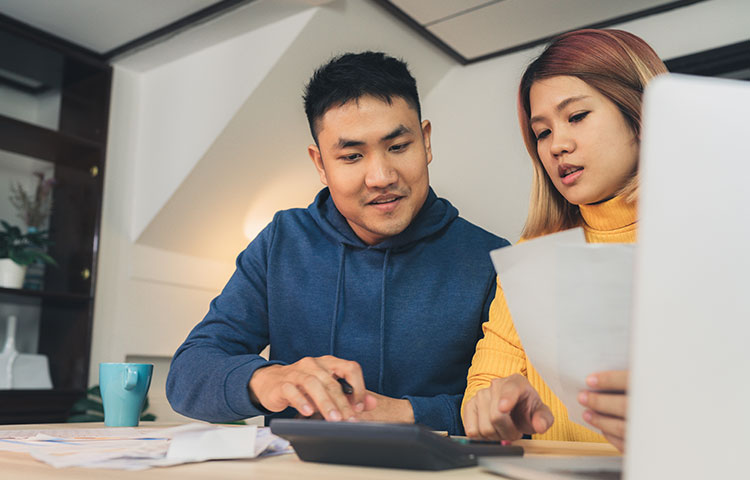
The Cost of Investing In Real Estate
Investing in real estate can provide a major boost to investment portfolios. However, such an investment involves a lot of moving parts. In fact, investing in real estate is not as simple as selecting a property and moving in tenants.
Instead, investment properties are an asset that needs to be properly acquired and maintained. By making informed decisions, your investment property could provide solid returns.
The key to success is being aware of the true cost of real estate investments. Therefore, it is important to note that investors will need to accommodate two types of costs, known as initial and ongoing costs.
Initial Costs
As the name suggests, initial costs encompass charges you will incur when you first put down an offer and buy the investment property. It’s worth mentioning that some initial costs won’t be relevant to all investors.
Deposit
All investors will be required to make a once off payment known as the deposit. In most cases, the deposit is usually 10% of the purchase price. The deposit can be paid in full, or in part, with the remainder due at a specified date.
Mortgage insurance
For investors borrowing in excess of 80% of the property’s value, the lender may require mortgage insurance. This one-off payment serves to protect lenders from borrowers who can’t repay the loan.
Loan establishment fees
Property investors who require a loan may also be required to make a once-off payment known as a loan establishment fee or start-up fee. This fee will be due when the loan commences.
Stamp duty
Investment property costs also involve a once-off payment known as stamp duty. The exact cost of stamp duty will differ from state to state and also depend on the purchase price. Additionally, stamp duty is usually higher on investment properties than principal homes.
Legal fees
Legal professionals or conveyancers are required in some states to legally transfer home ownership. These professionals ask for a one-off payment to prepare the required documentation and manage the settlement process.
Connection fee
When purchasing a property, connections to utilities and services must be established before any tenants move in. To do so, investors will be required to make a one off-payment.
Ongoing Costs
When it comes to investing in a rental property, there are many ongoing costs to consider. As ongoing costs can vary from month to month and even year to year, it is important to budget accordingly.
Insurance
All investment property owners should have building and landlord insurance. While coming at an annual cost, this comprehensive insurance protects investors from things like unforeseen building repairs and covers damage associated with fires and floods.
Land tax and council rates
Annual land tax is levied on the owners of the land. All investment property owners are liable for this tax. Council rate bills and government taxes will also be further ongoing expenses for landlords.
Mortgage
Mortgage repayments are an ongoing monthly expense. For some investors, rental payments may cover the cost of the repayments. For other investors, there may be a shortfall that needs to be covered to avoid any further expenses such as late fees.
Repairs
The costs of repairs are ongoing and, of course, various. As property owners, investors are expected to maintain the property to ensure it is liveable. Maintenance can be partly tax-deductible, however, investors will need to research what services can and can’t be claimed.
Utilities
Investment property owners will need to cover the monthly cost of any services which do not have separate metering devices. An example of a utility that investors may need to cover is that of water.
Property management fees
Property management fees are another ongoing cost that investment property owners may incur. Investors pay property managers to screen tenants and conduct reference checks to ensure high-quality tenants occupy the property.
Property managers are also paid to act as a buffer between owner and tenant. Coordinating communication if damage or other issues were to occur and ensuring that rent is paid on time.
Successfully investing in real estate
Purchasing an investment property is an exciting time. However, sometimes the process can feel overwhelming. Especially when you consider the different number of initial and ongoing costs that are associated with property ownership. All of which need to be properly calculated and accounted for.
Rather than letting an investment opportunity pass you by, take the opportunity to do some research. By thoroughly understanding the cost of renting out a house, you can make sound and successful investment decisions.
Our team at LJ Hooker can help you find the right investment property. We offer experience and excellent market knowledge that helps make the buying and property management process seamless. Contact the LJ Hooker team today to begin your investment journey.